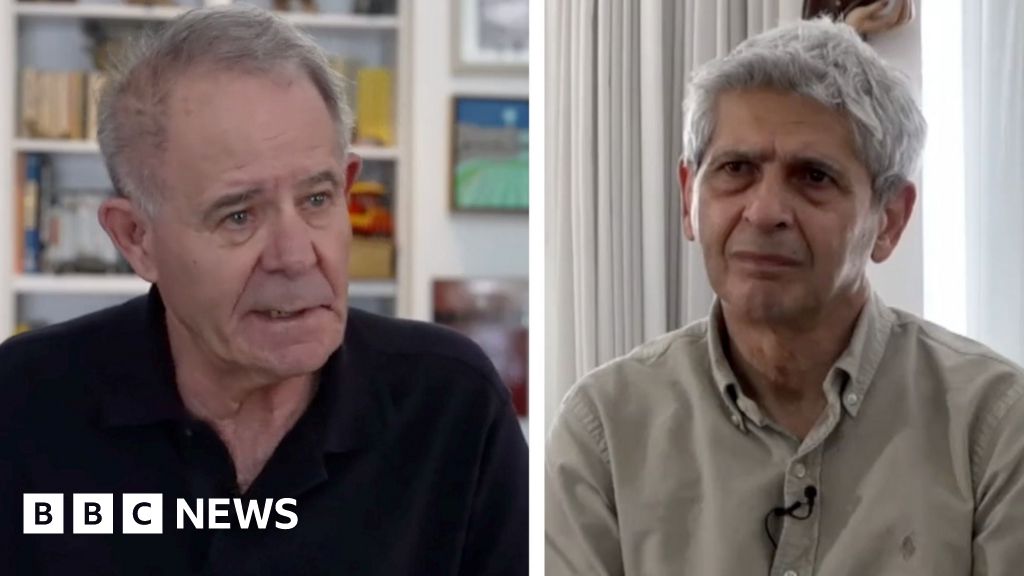
President Trump announced a travel ban Wednesday on 12 countries and a partial ban on seven others. Tasos Katopodis/Getty Images hide caption
toggle caption
Tasos Katopodis/Getty Images
President Trump on Wednesday signed a proclamation banning travelers from 12 countries and partially restricting travelers from seven others, starting on Monday, June 9.
The White House said the action was needed to protect the United States from terrorist attacks and other national security threats, and said the countries lacked screening and vetting capabilities.
The full ban applies to foreign nationals from Afghanistan, Burma, Chad, Republic of the Congo, Equatorial Guinea, Eritrea, Haiti, Iran, Libya, Somalia, Sudan and Yemen.
The partial ban applies to people from Burundi, Cuba, Laos, Sierra Leone, Togo, Turkmenistan, and Venezuela.
In a video statement posted on social media, Trump said the firebombing attack in Boulder, Colo., underscored why the ban was needed. The man charged with that attack was in the United States on an expired visa – though he has not been reported to be from any of the countries listed in the travel ban.
"In the 21st century, we've seen one terror attack after another carried out by foreign visa overstayers from dangerous places all over the world," Trump said in the video statement.
Shawn VanDiver with Afghan Evac, a nonprofit that helps resettle Afghans in the United States, says the "craziest part" to him is that the Trump administration has now gutted the special immigrant visa for Afghans who were employed by or on behalf of the U.S. government.
"The mechanism they killed or are trying to kill represents the safest legal immigration pathway our country has ever had," said VanDiver. "The most secure, safe legal immigration pathway our country has ever known, ever … because they're so thoroughly vetted. They get vetted like six different times."
VanDiver estimates there are roughly 250,000 Afghans in the pipeline, but with the Trump administration's disruption of refugee admission and resettlement programs, plus this new travel ban, there's no realistic route for them to immigrate to the United States.
"All these promises that [the U.S.] made are being broken," he said. "It's showing that our promises are temporary and conditional."
Background
This new travel ban is the result of an executive order Trump signed on his first day back in the White House. That order called on various agencies, such as the U.S. State Department, to help identify "countries throughout the world for which vetting and screening information is so deficient as to warrant a partial or full suspension."
Trump also sought to identify how many people from those countries were admitted during the Biden administration, to possibly retroactively suspend their visas.
Trump actively campaigned last year on restoring the travel ban he enacted in his first term. He described it as "unbelievably successful" in preventing terrorism attacks.
The backstory for that first ban is long and complicated.
In December 2015, as he was first running for president, Trump made a dramatic statement calling for a "total and complete shutdown of Muslims entering the United States." Then, a few days after he first took office, on Jan. 27, 2017, Trump signed an executive order that barred travel from seven Muslim-majority countries: Iran, Iraq, Libya, Somalia, Sudan, Syria and Yemen. The ban was technically temporary — the text specified 90 days.
But the outcry was immediate and swift. There was mayhem at airports and protests around the country as people who had existing visas were detained. There was no mention of the word "Muslim" in Trump's executive order, but critics say it was clearly advertised as such during his campaign. The ban faced legal challenges. And was blocked by a court.
The Trump administration made some minor revisions, dropping Iraq from the list and allowing exceptions for green card holders and people with pre-existing visas. But courts also struck down that revised version.
Ultimately, after multiple revisions, in the summer of 2018, the Supreme Court in a 5-4 decision backed Trump's travel ban. In that third iteration that the court upheld, Trump expanded the list of prohibited travelers beyond the Muslim-majority nations to also include people from North Korea and government officials from Venezuela.
The day he was inaugurated in 2021, then-President Joe Biden rescinded Trump's travel ban. He signed a presidential proclamation titled, "Ending Discriminatory Bans on Entry to the United States."
But now it seems that was only temporary.

 1 month ago
10
1 month ago
10










 English (US) ·
English (US) ·